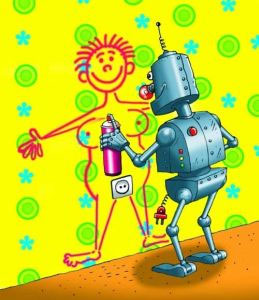The food of love
a blog dedicated to wine, women and song and whatz happening in Swaziland
Saturday, September 09, 2006

Reed Shaking
Last week I wrote about the reeds of Umhlanga, which reminded me that the tradition in this part of the world is that God created the first people from reeds. That article then reminded me of a saying in the Coptic Gospel of Thomas:
Saying 78:
Jesus said, ‘Why have you come out to the countryside? To see a reed shaken by the wind? And to see a person dressed in soft clothes like your rulers and your powerful ones? They are dressed in soft clothes and they cannot understand truth.’
It is true that having possessions all too often dulls our perceptions. The shoes on our feet not only protect us but also isolate us from the soil. When it is cold we turn on our heaters and plug in our electric blankets; when it is hot we take iced water from our fridges and switch on our electric fans. We wait for payday so that we can buy more of these things, more things that we have told ourselves that we need, and in the pursuit of these things we forget to feel the morning breeze or notice the quality of the late afternoon light or the bright piercing beauty of the stars in a cloudless sky at night. We live in an age when all too often it is only our cars and coins and credit cards that seem to shine. Connie Bensley’s poem, Shopper, expresses this modern malaise:
I am spending my way out
of a recession. The road chokes
on delivery vans.
I used to be Just Looking Round,
I used to be How Much, and
Have you got it in Beige.
Now I devour whole stores—
high speed spin; giant size; chunky gold;
de luxe springing. Things.
I drag them round me into a stockade.
It is dark inside; but my credit cards
are incandescent.
The Coptic Gospel of Thomas, like the canonical gospels, is saturated with a concern for the poor and a warning against the pursuit of wealth. For example, saying 69 reads; ‘Blessed are those who go hungry so the stomachs of those in need may be filled’; and saying 95 advises: ‘If you have money, don’t lend it at interest. Rather, give it to someone who can’t pay it back’.
We need to resist the siren call of consumerism and pay attention to what is already around us. How many of us have seen a reed shaken by the wind? We like to watch, but we seldom see. We move around in our cars and buses and through their windows we watch the world outside. All we are doing is experiencing another kind of TV. A colleague once asked me, ‘Ken, how do you get to meet so many people? I don’t seem to meet anybody new.’ I told him that I drive my car to town, park it somewhere, and then walk to wherever I want to go. On the way I always meet someone. If you sit in your car and drive everywhere you will never meet anyone or see anything. Life is outside the windows.
This last week I spent a lot of time at home just sitting by the river, listening to its sounds as it spilled along and tumbled over the stones and rocks. There are a lot of ferns there and some reeds and I saw how the plants were often blown to-and-fro by the wind, but they didn’t break—they always bent with the breeze, brushed aside its force, and then sprung back into their proper shape again. I though they were a wonderful illustration of how we should deal with everyday stress. When pressure comes—and it always will—we should bend with it and then let it slip on by, and then bounce back into our true shape. We can learn a lot from a reed shaken by the wind.

